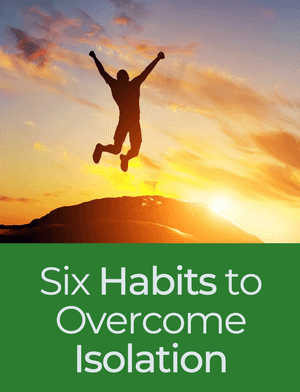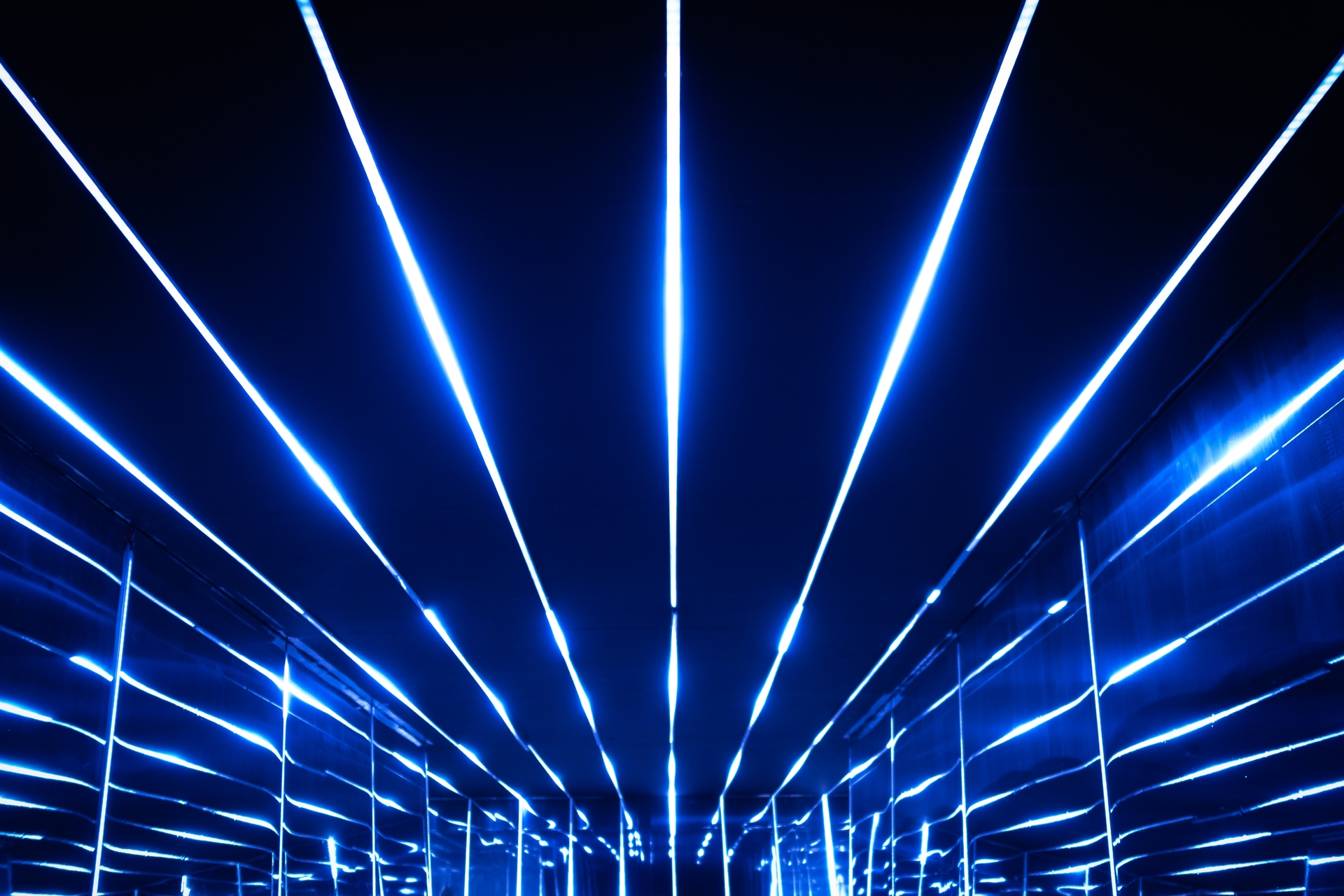
Get the Six Habits for Overcoming Isolation Guide for free


While blue light is environmentally friendly, it may not always be so friendly to our health. For example, blue light can affect your sleep and potentially contribute to disease. Until the invention of artificial light, the sun was our only source of light, and once it had set, people spent their time in relative darkness.
Listen to the podcast version here
Nowadays, we live in a world where most of our surroundings are flooded with artificial lumens day and night, and we don't even think twice about our easy access to them. The world is filled with electromagnetic energy; it moves around us, and even through us, in the form of waves. These waves vary in length, the longest being radiowaves and the shortest x-rays and gamma rays.
The human eye cannot perceive most electromagnetic waves except for a small band of waves known as visible light. Visible light waves vary in length from 380 nanometers (violet light) to 700 nanometers (red light). Generally, the shorter the wavelength, the higher the energy it carries.
Blue light is a short wavelength, which means it produces more elevated amounts of energy. In fact, blue light is only slightly less potent than UV waves, which cannot be seen by the naked eye but has the potential to damage your skin and eyes.
Not all colors of the light spectrum have the same effect on your body. Blue wavelengths are beneficial during the day because they boost focus, mood, and reaction times and are quite disruptive at night. The surge in the availability of electronics with screens and energy-efficient lighting has heavily shifted our exposure to blue light towards after sundown.
While everyone is different, the average circadian rhythm is 24 hours and 11 minutes. The circadian rhythm of those who stay up late is a little longer and shorter for those who go to bed early. Daylight, or blue light waves from the sun, is what keeps your internal clock aligned with the environment.
Exposure to light suppresses the secretion of melatonin, the hormone that controls circadian rhythms. Even dim light can interfere with your melatonin secretion and thus affect your sleep.
While light of any kind can inhibit the secretion of melatonin, blue light after sundown does so most powerfully. Researchers found that exposure to blue light suppressed melatonin for twice as long as green light and shifted circadian rhythms by twice as much; six and a half hours of exposure caused the subjects to fall asleep and wake up three hours later than they usually would.
Blue light has been shown to contribute to digital eye strain, a condition affecting those who spend a lot of time in front of screens, such as computers, smartphones, and tablets. Digital eye strain can cause various issues, including eye fatigue, dry eyes, and headaches.
When blue light enters the eye, it is more easily absorbed by the lens than other types of light, which can cause glare and visual distortions. Because the eyes have to work harder to process and focus on the images on a screen, they become strained and fatigued.
In addition to causing eye fatigue and discomfort, exposure to blue light can lead to dry eyes. This is because blue light can trigger the production of certain chemicals that can reduce the amount of moisture in the eye, leading to dryness and discomfort.
There are several ways you can limit your exposure to blue light to protect your eyes and maintain healthy sleep patterns. Some options include:
I used to feel like the empty shell of a person just going through the motions of life. People jokingly referred to me as a robot and described me as overly logical without any apparent emotions. I was depressed, anxious, and didn't understand the point of being alive.
I learned the importance of analyzing my needs and wants, consuming information and resources that got me excited about life, doing what needed to be done to close the gap with where I wanted to be, and finding rest within myself to be free from anxiety and disturbances. I also learned how to trust myself and to rely on a solid group of friends allowing me to tap into an enormous amount of strength.
I summarized everything I learned in the Six Habits for Conquering Anxiety and Depression e-book to help you make the same journey. You can sign up for my newsletter on the bottom of this page to receive blog updates (never spam), and you will receive the ebook for free.

Get the Six Habits for Overcoming Isolation Guide for free